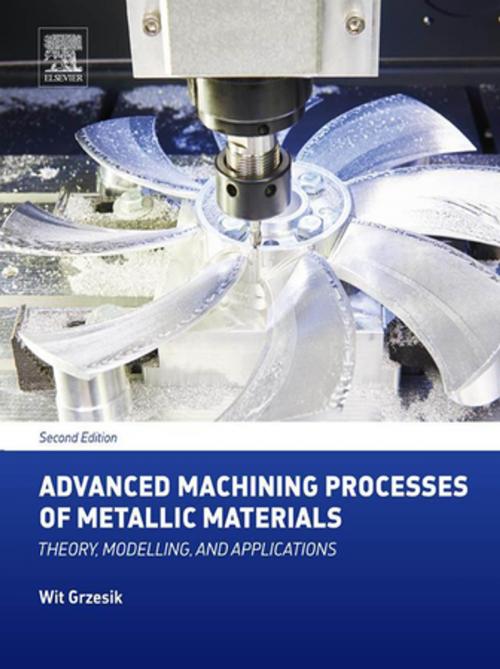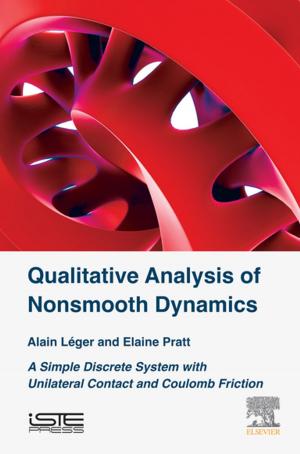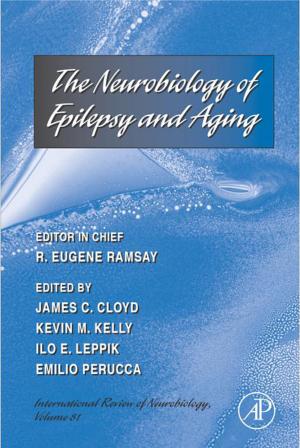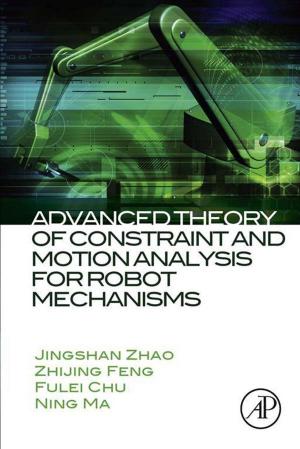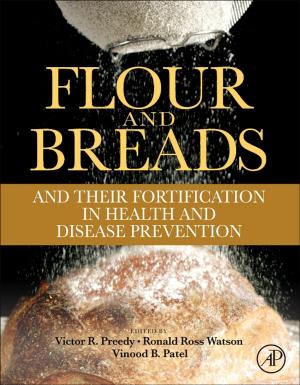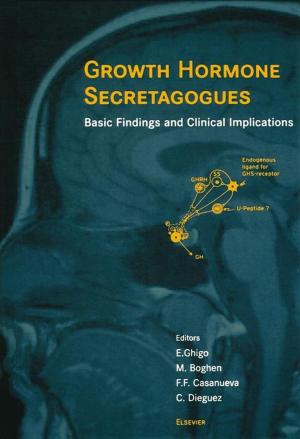Advanced Machining Processes of Metallic Materials
Theory, Modelling, and Applications
Nonfiction, Science & Nature, Technology, Metallurgy, Machinery| Author: | Wit Grzesik | ISBN: | 9780444637208 |
| Publisher: | Elsevier Science | Publication: | November 15, 2016 |
| Imprint: | Elsevier | Language: | English |
| Author: | Wit Grzesik |
| ISBN: | 9780444637208 |
| Publisher: | Elsevier Science |
| Publication: | November 15, 2016 |
| Imprint: | Elsevier |
| Language: | English |
Advanced Machining Processes of Metallic Materials: Theory, Modelling and Applications, Second Edition, explores the metal cutting processes with regard to theory and industrial practice. Structured into three parts, the first section provides information on the fundamentals of machining, while the second and third parts include an overview of the effects of the theoretical and experimental considerations in high-level machining technology and a summary of production outputs related to part quality.
In particular, topics discussed include: modern tool materials, mechanical, thermal and tribological aspects of machining, computer simulation of various process phenomena, chip control, monitoring of the cutting state, progressive and hybrid machining operations, as well as practical ways for improving machinability and generation and modeling of surface integrity.
This new edition addresses the present state and future development of machining technologies, and includes expanded coverage on machining operations, such as turning, milling, drilling, and broaching, as well as a new chapter on sustainable machining processes. In addition, the book provides a comprehensive description of metal cutting theory and experimental and modeling techniques, along with basic machining processes and their effective use in a wide range of manufacturing applications.
The research covered here has contributed to a more generalized vision of machining technology, including not only traditional manufacturing tasks, but also potential (emerging) new applications, such as micro and nanotechnology.
- Includes new case studies illuminate experimental methods and outputs from different sectors of the manufacturing industry
- Presents metal cutting processes that would be applicable for various technical, engineering, and scientific levels
- Includes an updated knowledge of standards, cutting tool materials and tools, new machining technologies, relevant machinability records, optimization techniques, and surface integrity
Advanced Machining Processes of Metallic Materials: Theory, Modelling and Applications, Second Edition, explores the metal cutting processes with regard to theory and industrial practice. Structured into three parts, the first section provides information on the fundamentals of machining, while the second and third parts include an overview of the effects of the theoretical and experimental considerations in high-level machining technology and a summary of production outputs related to part quality.
In particular, topics discussed include: modern tool materials, mechanical, thermal and tribological aspects of machining, computer simulation of various process phenomena, chip control, monitoring of the cutting state, progressive and hybrid machining operations, as well as practical ways for improving machinability and generation and modeling of surface integrity.
This new edition addresses the present state and future development of machining technologies, and includes expanded coverage on machining operations, such as turning, milling, drilling, and broaching, as well as a new chapter on sustainable machining processes. In addition, the book provides a comprehensive description of metal cutting theory and experimental and modeling techniques, along with basic machining processes and their effective use in a wide range of manufacturing applications.
The research covered here has contributed to a more generalized vision of machining technology, including not only traditional manufacturing tasks, but also potential (emerging) new applications, such as micro and nanotechnology.
- Includes new case studies illuminate experimental methods and outputs from different sectors of the manufacturing industry
- Presents metal cutting processes that would be applicable for various technical, engineering, and scientific levels
- Includes an updated knowledge of standards, cutting tool materials and tools, new machining technologies, relevant machinability records, optimization techniques, and surface integrity
